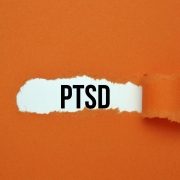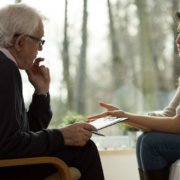Living with PTSD
We are all living with PTSD, either personally or as a community. Someone, somewhere in our lives is living with PTSD and understanding it is important.
PTSD is when a person has difficulty recovering after experiencing or witnessing a terrifying or emotionally distressing event. And PTSD can affect anyone. Thankfully in recent years, the public conversations and understanding around PTSD has grown. The more we know and understand this often-serious disorder, the better.
PTSD Causes
A wide range of events can lead to symptoms of PTSD such as:
- Car crash.
- Assault or abuse.
- The death of a loved one.
- War.
- Surviving a natural disaster.
- Diagnosis of a life-changing medical condition or any other event where you fear for your life.
Symptoms of PTSD
Most people experience short term symptoms associated with PTSD like trouble sleeping and flashbacks. This is known as an acute stress reaction and these symptoms will usually go away in a few weeks. However, some people experience symptoms that last much longer.
Long term symptoms of PTSD include:
- Reliving aspects of the event that happened.
- Feeling on edge or overly alert.
- Avoiding memories or feelings and difficult beliefs.
- Experience hyper vigilance.
- Nightmares.
- Physical symptoms.
- Difficulty with relationships, education, or employment.
Living with PTSD
If you or someone you know might have PTSD and has some of the symptoms above, NOAH recommends:
- Learn more to help yourself or a loved on. The National Center for PTSD has great resources for everyone, but a lot for those veterans living with PTSD.
- Get professional support like a counselor or psychiatrist. NOAH has a full team!
- Know your triggers.
- Confide in a friend, family member, or professional when you are ready.
- Try peer support groups online or in person.
- Keep up with your physical health.
- Avoid drugs and alcohol to cope with difficulty feelings.
There are many treatments for people living with PTSD or PTSD symptoms. A behavioral health professional can help an individual process in a healthy and effective way. There are also medication options to assist in alleviating symptoms. You and your behavioral health team can work together to decide which treatment will work best for you. NOAH has a team of medical and behavioral health professionals to support you on your journey to healing.
If you are ready to talk with someone about questions or challenges you or a loved on has that may be PTSD, contact NOAH today.






